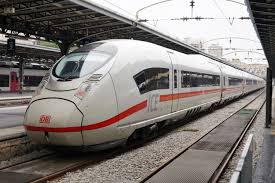The Significance of Trains in Modern Transportation

Introduction
In the era of climate change and rising fuel costs, trains have emerged as a vital component of sustainable transportation. As communities and governments across the globe seek greener alternatives, the importance of rail travel is being spotlighted more than ever. With innovations in technology and infrastructure, trains represent not only a more environmentally friendly option but also an efficient means to connect cities and reduce traffic congestion.
Current Developments in Rail Transport
Recent years have witnessed impressive advancements in train technology. High-speed trains, like the Eurostar and Japan’s Shinkansen, provide rapid transit across vast distances, significantly cutting travel times. Meanwhile, countries like the UK and Germany are investing heavily in their rail infrastructure. In the UK, the Integrated Rail Plan aims to enhance connectivity and bolster the rail network amidst competition with airlines and cars.
Additionally, there’s a notable shift towards electrification of trains. Countries are working to reduce reliance on diesel engines, with electric trains being shown to produce up to 80% less carbon emissions. According to a report by Network Rail, the UK will see a significant increase in electrified routes over the next decade, promoting cleaner, more efficient rail travel.
Economic and Social Impact
Economically, trains play an essential role in boosting regional development. Research indicates that improved rail links can increase economic output by up to 8% in the areas served. Such accessibility helps businesses thrive, promotes tourism, and drives job creation in related sectors.
Socially, the expansion of rail transport can democratise travel, making it more accessible across different socioeconomic groups. Trains are often a more affordable travel option compared to flying, thus allowing families and individuals to travel without significant financial strain.
Challenges Ahead
Despite these positive strides, the rail industry faces challenges, such as outdated infrastructure and increasing operational costs. Many rail systems were built decades ago and require urgent upgrades to meet modern demand and technology standards. Moreover, some governmental funding priorities tend to favour road and air transport over rail sectors.
Conclusion
As the world continues to grapple with climate challenges and urbanisation, the relevance of trains in sustainable travel cannot be underestimated. The ongoing investments and advancements in rail technology and infrastructure hold promise for a greener future. Rail travel not only enhances connectivity but is also a pivotal factor in reducing overall emissions. As such, continued support for train systems may well serve as a cornerstone of future transport solutions, fostering economic growth while promoting sustainable living approaches for generations to come.







